Wood and concrete have been used in construction for thousands of years and for good reason. Both materials have properties that make them appealing building materials. In this blog, we will tackle the age-old debate of wood vs. concrete. However, before we dive headfirst into this heated debate, we will also clarify cement vs. concrete as well as other considerations to keep in mind.
Explore 12 Futuristic Technology Trends Solving Concrete's Biggest Challenges.
As professionals in construction, we know that you can look at this question from various perspectives, which ultimately affects your interpretation of the advantages and disadvantages listed below. We also recognize the distinction between immediate advantages and long-term benefits. In other words, the benefits that a material could provide in the long term may outweigh the drawbacks you experience today. Therefore, you should keep your own priorities in mind as you read this post.
An In-Depth Look at Concrete Construction
Cement vs. Concrete
First, it is important to use the correct terms when discussing concrete. Many people use cement and concrete interchangeably, but these terms are fundamentally different. To start with, cement is a binding agent made from limestone and other minerals. Through a series of chemical processes, they turn into a fine powder that is hydraulic in nature. On the other hand, concrete is a building material that uses cement as part of its components. It also includes water and other aggregates. According to this study, concrete is the second most used material after water. What’s more, it is often the top choice in construction because of its resistance to harsh environments and its environmental friendliness. Thus, differentiating cement vs. concrete is useful to understand the latter’s advantages and disadvantages:
Advantages of Concrete
- Very durable
- Low maintenance
- Does not rust, rot, or burn
- Absorbs & retains heat (increases efficiency in buildings and cuts heating/cooling bills)
- Wind and water resistant
- Non-combustible (fire safe)
- Effective soundproofing material
Disadvantages of Concrete
- More expensive
- Heavy & difficult to transport (although lightweight concrete does exist)
- Limited versatility
- Slower to build with
- Susceptible to efflorescence
An In-Depth Look at Timber Construction
Similar to concrete, wood, or timber, has its benefits and its drawbacks as a building material:
Advantages of Wood
- Light, and easy to work with
- Inexpensive
- A natural resource (readily available, presenting promising opportunities)
Disadvantages of Wood
- Building inspectors have found it to be a hot spot for mold growth and moisture-related problems, which undermines the structural integrity
- Wood is more susceptible to water damage, fire, decay, and termites
Sustainability and the Environment
When we think of wood, we often imagine a natural, sustainable, and environmentally friendly building material. And in many ways, it is. Wood stores carbon dioxide, which results in a reduction of carbon dioxide emissions by 2,432 metric tonnes (equal to taking 500 cars off the road for a year).
In contrast, concrete is often criticized for being unsustainable as it takes a lot of resources to produce. Cement, which we learned is a main component of concrete, is one of the world’s biggest contributors to greenhouse gas emissions. Many people assume that because cement production is bad for the environment, so is concrete production. However, the truth is far more complicated than that.
Let’s take a closer look…
- Concrete is durable—its lifespan is actually two or three times longer than other common building materials.
- Concrete is great at absorbing and retaining heat, which means it will increase the energy efficiency of a building and reduce HVAC expenses.
- Its reflective properties will decrease air-conditioning costs in the hot summer months.
- Concrete produces little waste as it can be produced in batches specific to project needs.
Wood vs. Concrete: Which is Safer?
Last but not least, there is safety. In general, wooden structures are not as safe as concrete buildings. Wood is vulnerable to external threats like fire, wind, insects, moisture, and mold—all of which can result in structural damage and safety risks.
While concrete is a durable and strong material, it also presents some safety risks. For example, if a concrete structure collapses at a job site or once the building is occupied, the falling concrete could seriously injure anyone who is nearby.
Additionally, if you are a builder working with dry or wet concrete, you may experience irritation of the eyes, nose, throat, or skin. Furthermore, exposure to silica, a main ingredient in dry concrete, can cause far more severe health issues, including lung cancer.
Now that you know everything about building with concrete and wood, which would you choose? Let us know by commenting below!
Sources
Cement and concrete as an engineering material: An historic appraisal and case study analysis
Mold Busters
Heritage Insurance
**Editor’s Note: This post was originally published on April 25th, 2018 and has been updated for accuracy and comprehensiveness.
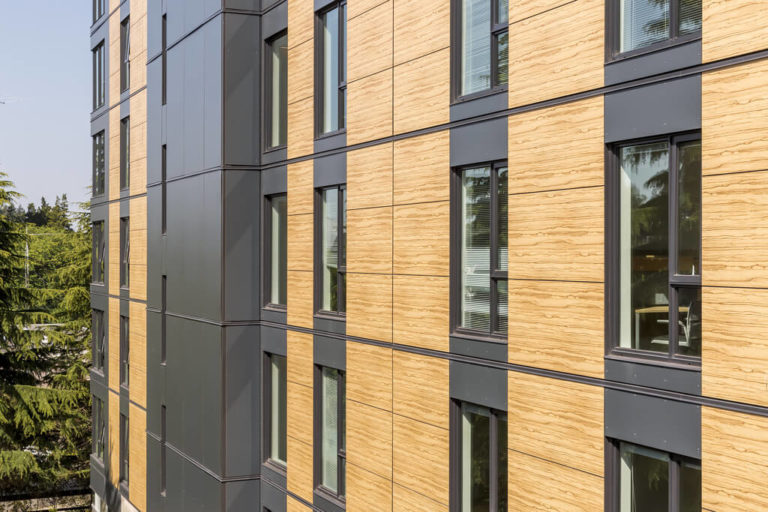
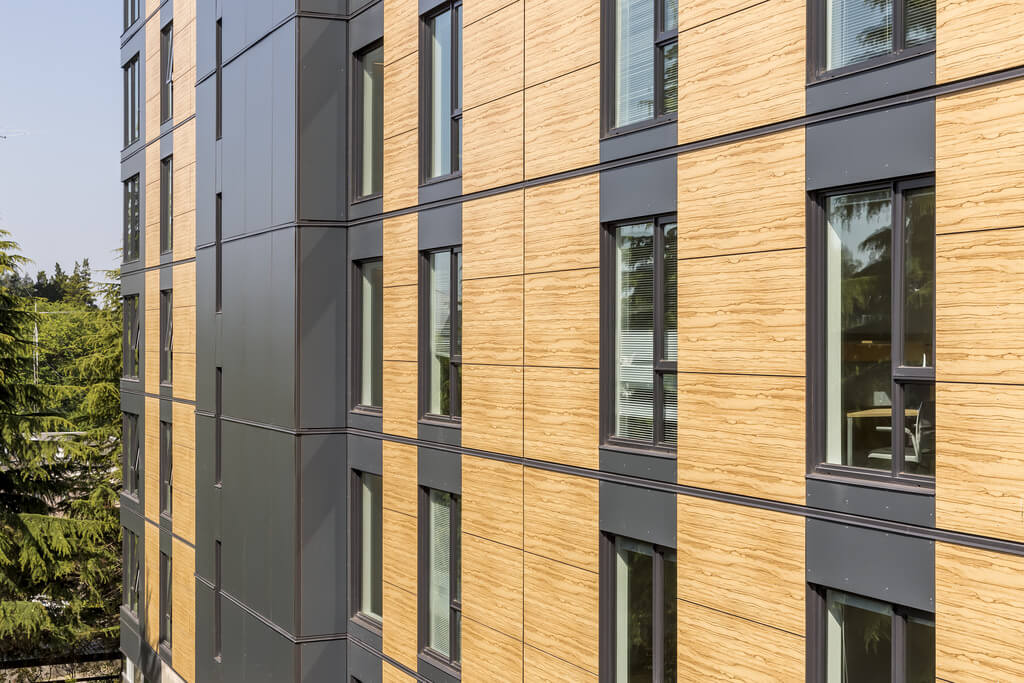
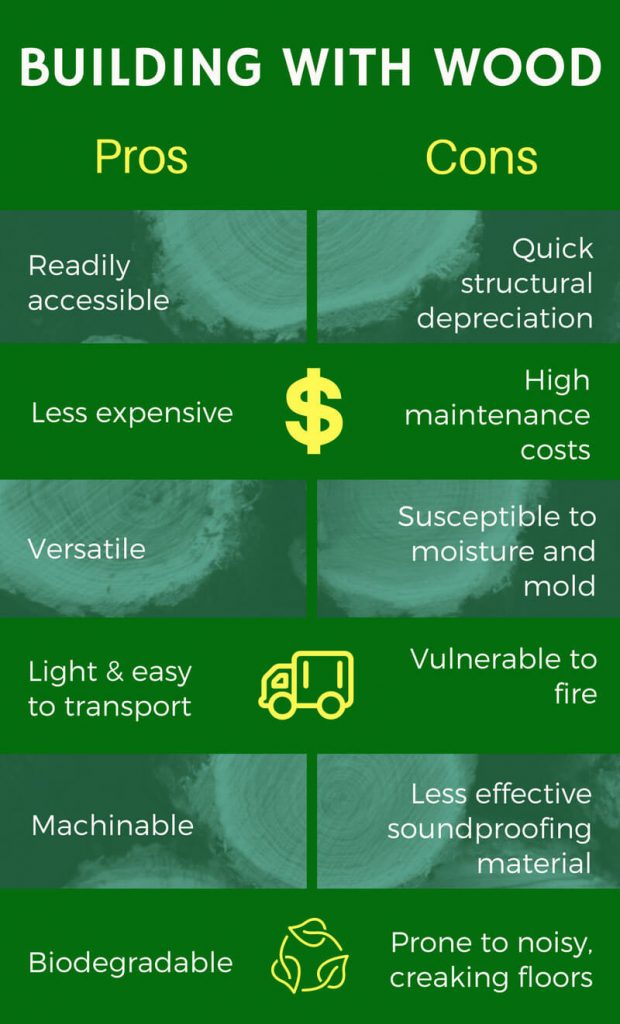
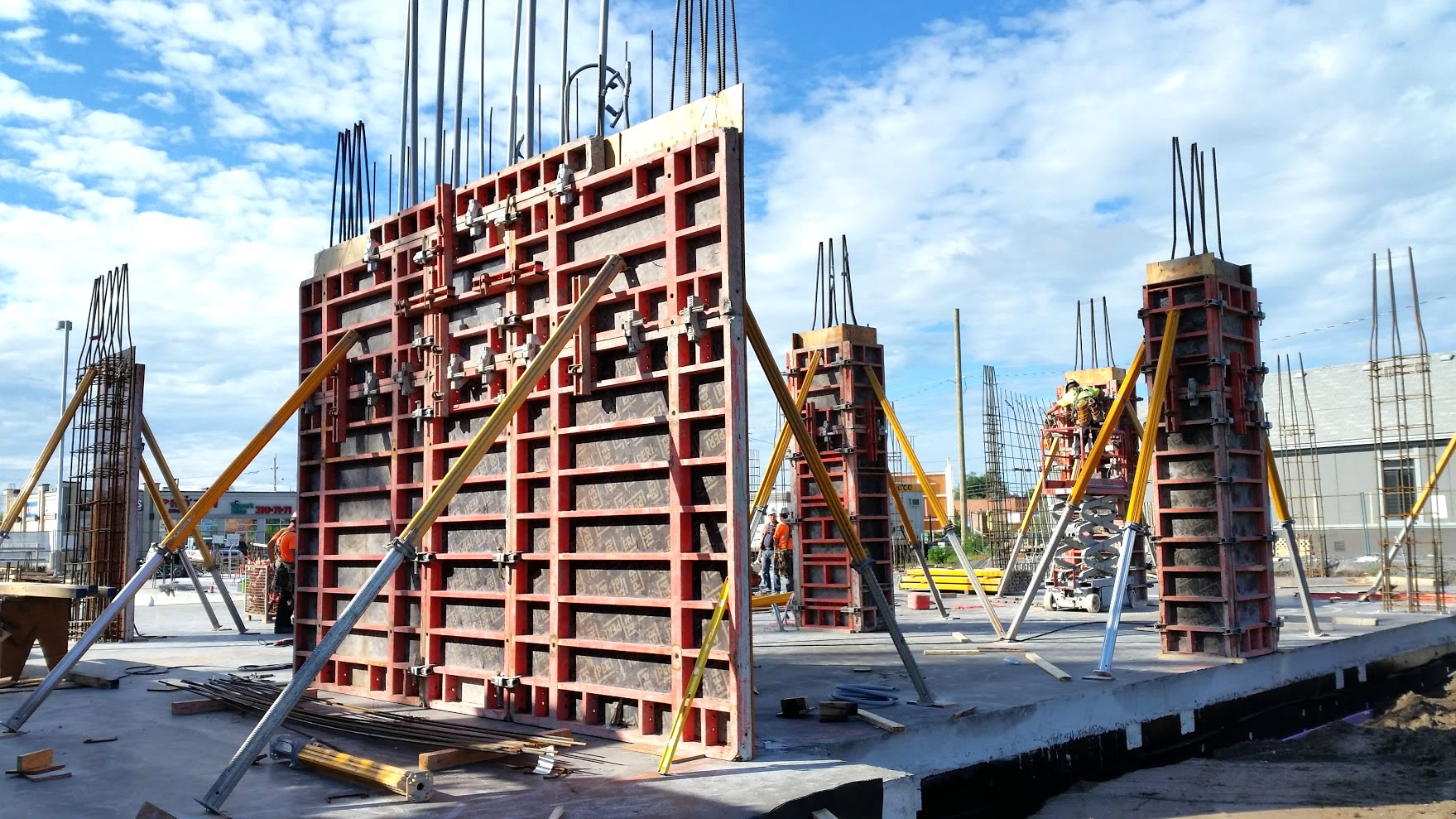
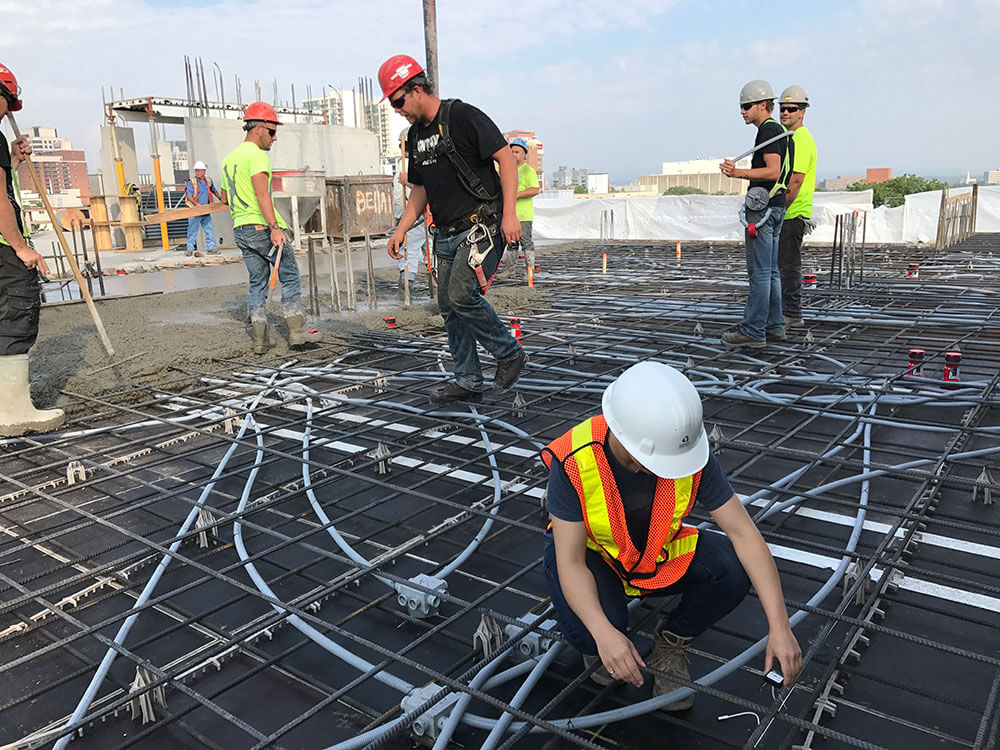
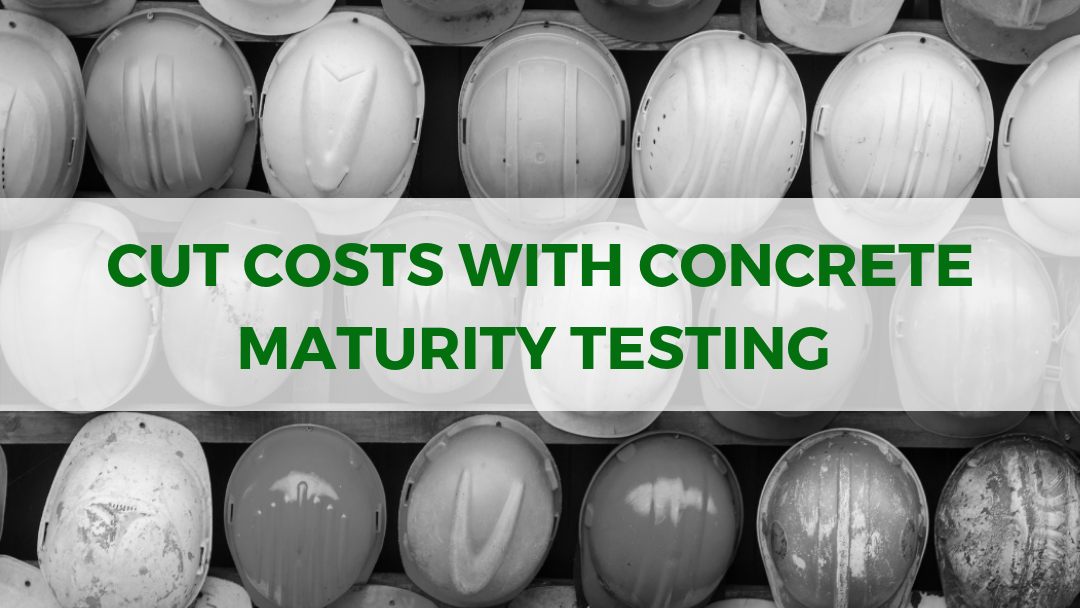
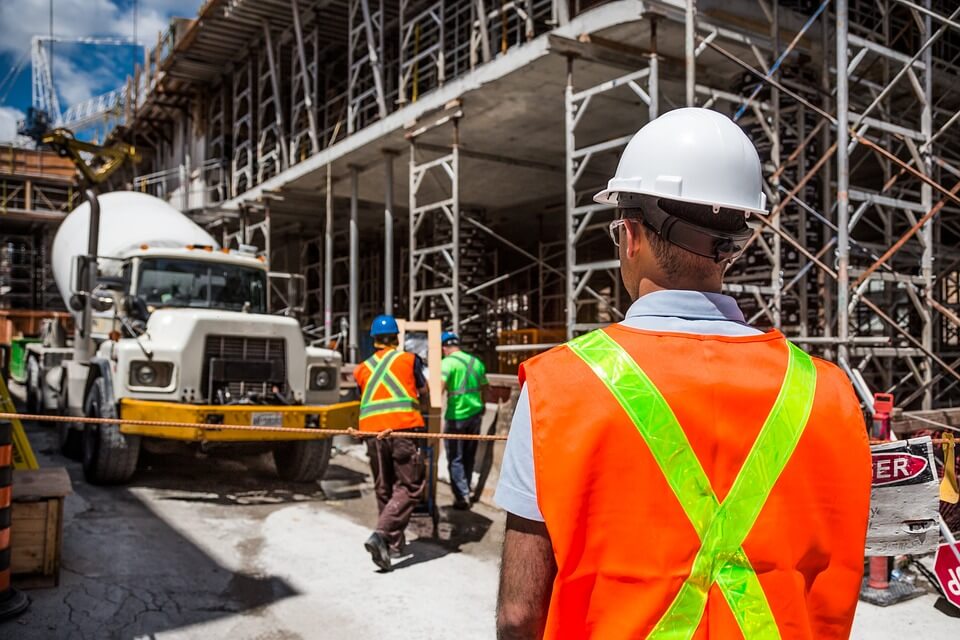
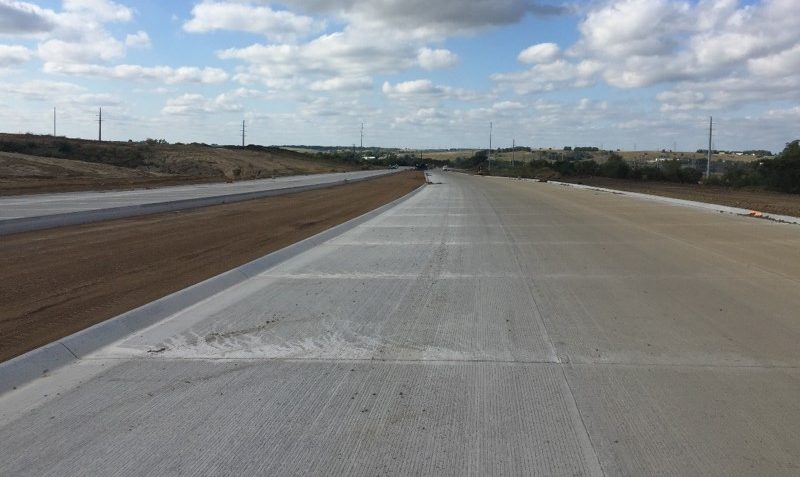
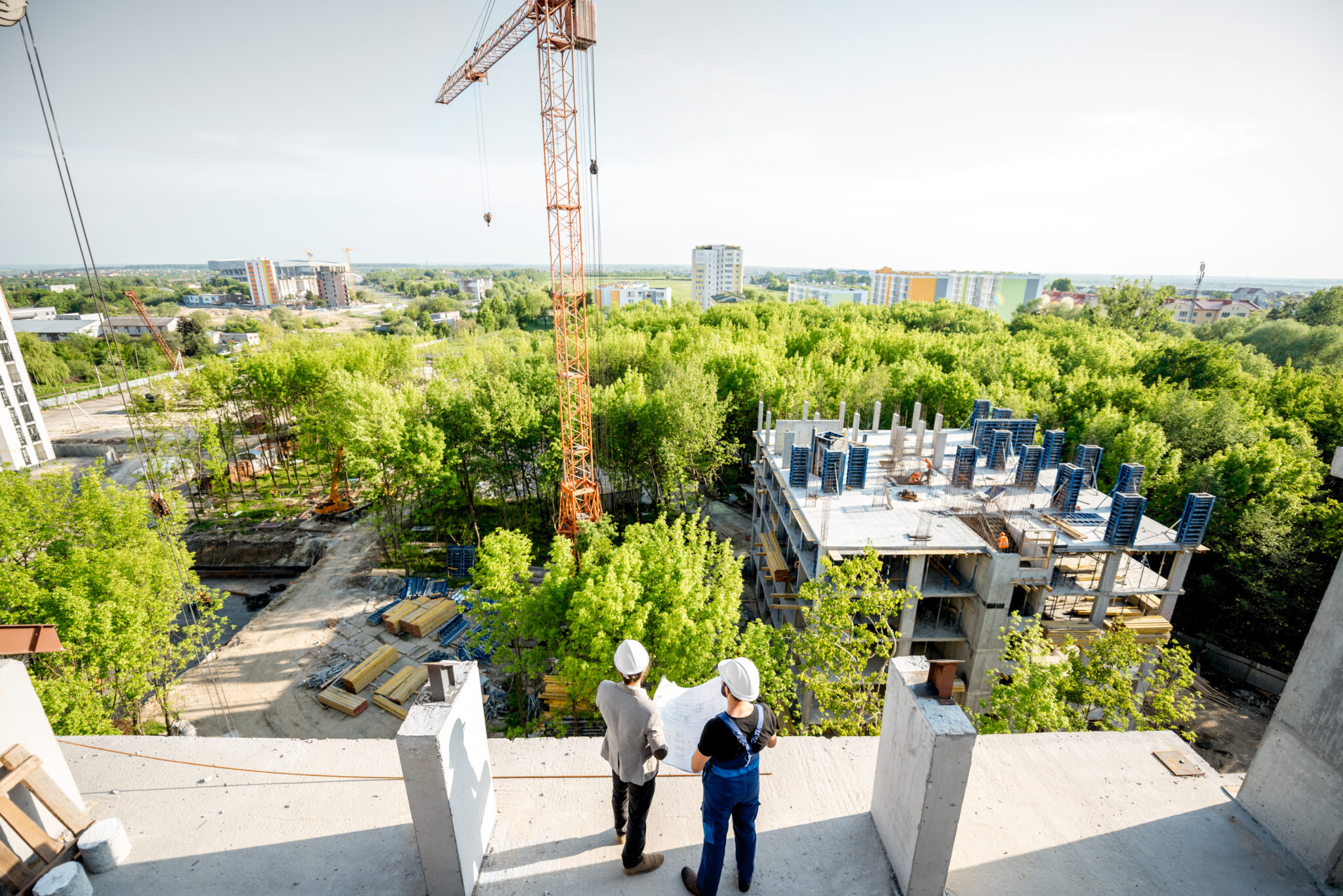

46 Responses
This is really appreciated that you have presented this data over here, I love all the information shared. It will be very helpful to understand the wood vs concrete best choice builders’ contractors. Great post to share!!
This will help future home owners decide as to what to use in their floor,this is a great guide.
There are certainly more factors to consider in the wood vs. concrete decision. Concrete must reinforced (extra expense) to perform safely in an earthquake prone environment, while wood is inherently more flexible and ductile and thus performs better without requiring extra expense in design in an earthquake-prone environment. But because the useful life of wood building materials is shorter than for concrete, designing building structures with wood members than can be swapped out (as modular designs) can overcome that issue. Can concrete members be recycled or repurposed? Perhaps, but wood members certainly can be because wood is more easily shaped than concrete.
When you talk about which is safer than concrete or wood, I could say the concrete is safer than the wood because it is more durable and sustainable even though it is more expensive than the wood but it is worth it for your safety.
This is such a nice blog on wood vs concrete which one will the best choice for builders contractors. This article provides us true and insightful information regarding it. This article is very helpful. I am sure many people will come to read about it in future.
Thank you for enlightening us.Thank you so much for sharing a great article.
Such an informative article, I love the way the article talk about the difference between wood and concrete in terms of construction detail by detail it helps a lot of people to choose wisely what to use. Thank you for this article such a great help.
Here you will get to know about wood vs concrete best choice builders contractor.Such illustrations are given that a layman could even understand. It is an easy to comprehend blog which can be instigated by all at least once. I am sure many people will come to read this in future.
It’s great that you mentioned that suing wood to build structures is beneficial because it’s light, inexpensive, and is readily accessible since it’s a natural resource. My dad plans to build a bridge over the pond in our 20-acre ranch, so he’s trying to figure out what material to use. I’ll share this information with him so he can hire a timber bridge building service for our ranch. Personally, I would prefer it if we use wood since it’s more natural and eco-friendly. Thanks!
It was interesting to learn about how concrete can last a lot longer than other building materials by two or three times and it can absorb and retain heat. I can understand how a business could get the right building materials so that it can be more durable. It could be really useful for them to get it from a professional so that it can be put together efficiently.
nice info thanks I have Faced this type of issue. After read your blog , i have used this steps and this are really helpful for me.
I appreciate your information that concrete lasts two or three times longer than other building materials and is great at absorbing and retaining heat. Knowing that, I will start looking for a concrete contractor that can help us build our home. We want to have a comfortable home that will last for at least the next 30 years without having to make any adjustments to the walls or foundation.
I would choose wood. We have heaps of it in NZ and as it is safer for children (50% of injuries to toddlers are falls) If they fall on a concrete floor, even covered in carpet, head injuries can cause death. School playgrounds now have protective surfaces such as rubber instead of asphalt; these surfaces are costly but schools can’t afford to allow a child in their care to be harmed or killed on a hard unbending surface like concrete. Wood is a benefit to the elderly for the same reason. Aesthetically wood is beautiful, requires no electric powered and made of plastic vacuum cleaner and locks up carbon (thinking of the environment) AND these days has below floor insulation equaling no draughts or loss of heat. Wood needs no carpet which wears out and stains easily. NZ is a rainy warm place yet mould isn’t a problem I have seen with wooden floors. Sometimes leaky taps can rot a bathroom floor in one spot but that takes years and could have been avoided if the tap were fixed. Concrete gives off dangerous fumes especially to workmen, it harbours cockroaches and doesn’t require the destruction of areas where lime, gravel etcetera are mined. Fires in wooden homes are not a major problem now that smoking is outlawed and we use electricity for heating and cooking. Wood has a quality that makes even old furniture look stylish and hey – we have homes built in the 1940s ’50s and 60’s which are popular nearly 100 years later because of these beautiful intact wood floors. The best indoor sports facilities have wooden floors and dance floors are best in wood as well – in fact concrete is absolutely bad for those things.
LOL no one that builds a concrete home has concrete floors when thay move in.
I like how concrete has a longer lifespan than most common building materials. I think a ton of people might not realize how effective concrete is for building. I hope that more and more buildings are made from concrete so they can all last longer.
Thank you! Very informative!
It’s awesome that you listed that concrete buildings don’t rust, or require little to no maintenance, making them a great option for a structure. My dad needs to build a small workshop in one fo his acres, so he was thinking about a wood or concrete facility. He will be fascinated by how beneficial a concrete structure will be because of its durability as well.
Good article with an excellent way of presentation. Keep it up. Thanks for sharing.
It’s good to know that concrete is low maintenance because I’m thinking of redoing my driveway with it. Right now, we have gravel. As you can imagine, it’s mostly mud and a little bit of gravel. I’d like to fix that and have a real driveway.
It’s awesome that concrete has three times the lifespan of other building materials. My sister has been telling me about how she wants to get a new driveway installed in the coming weeks. I’ll share this information with her so that she can look into her options for professionals who can help her get this done with concrete.
No doubts- concrete better.
Cheaper, faster is about wood.
Solid, durable, expensive is about concrete and brick.
Nobody mentioned about how Eco or Green is to build from clay brick or just simply bricks which is made literally from clay, you don’t need to cut forests, just save the trees and the planet, clay is available almost everywhere. Yes it’s a little bit harder to work with when building a house but it’s much more durable, it can last for 200 years if properly isolating the brick walls. It can be mostly used in the US East Coasta or other regions where an small earthquake barely happens every 15 or 20 years. California or other seismic regions of course are an exception.
I bet in few decades there will much less forests left to cut forcing the entire industry to search for an alternative material.
Although concrete house is generally better than wooden, however in cold and windy climate the wooden house is better. Because, wood has a good heat isolation property and a high heat capacitance. Moreover, a tree takes about 10 years to be grown and used as timber and during this 10 years it serve as CO2 absorbent and air conditioner and as timber concentrates a lot of CO2 in itself.
You are too optimistic about a tree taking 10 years to grow up. Actually it takes much more to have a solid tree and thick enough for to be worked by a machine tool and cut in pieces ready to build a house.
I had no idea that concrete was generally safer than wood, especially when it comes to threats like mold and fire. My friend is looking at bidding on a project and is trying to figure out what to build it out of. We’ll have to look into concrete pumping services.
This topic was really good, and helps me
please share cost estimation of wood structure if you have..?
Hi there, unfortunately, this is a research article written for educational purposes and is not in our area of expertise. We appreciate your interest in Giatec and are sorry we are not able to help you in finding further information regarding wood structures.
its is very helpfull in doing my surveying report of a newly built two bedroom house single storey
Awesome read! This helps a lot especially for people who cannot decide what to choose between wood and concrete.
It’s good to know that concrete is a durable and low maintenance material for the foundation of your building. My wife and I are looking into building a house, and we need to decide on a foundation material. We’ll be looking further into the benefits of concrete foundations in the future.
Incredible astute read! it was worth to peruse. At the present time, basic lightweight cement is a standout amongst the best item which you may incline toward for development.
thank you very much for your informative article and more thanks for i get best idea read this article about ….. many more days i was searched this topics, finally i got it.
My boss wants to build a warehouse next to our office, and your article had some great information about what material should be used to build it. I liked how you said that concrete is a good choice because it is durable and doesn’t rust, rot, or burn. Thanks; I’ll share this with my boss to help him decide what material he wants to use for the warehouse.
It got me when you said that concrete is going to make your buildings energy-efficient since it retains hear. I will definitely choose this for my future building to save us money in the long run. This article is really helpful for us who will be having a building constructed on the land that we just bought last year.
I had no idea that concrete has a lifespan two to three times longer than any other kind of building material. When working with something as complicated as concrete construction, it’s important to hire a reliable contractor that has the proper knowledge and skillset. If I were to need such services, I would make an effort to work with a contractor that has been in business for many years.
Great article in pointing out the difference between wood and concrete. It also discusses the advantages and disadvantages of each material. As for me, I love construction so choosing between wood and concrete to be the foundation of the building is really a tough choice.
Thank you for your comment!
I like what you said about how concrete will offer extreme durability while still being easy to maintain. If I were to build a custom home, I think I will opt for concrete as the main construction material. I’m a bit unmotivated to do some maintenance work around the house, so I think concrete will help me worry about fewer things in the future.
Amazing article on the advantages of concrete roads! You have cleared all the doubts. This blog of yours is very helpful for the students.
It is nice to know that using concrete means that you have a longer life for what you are building. Making sure that you are getting concrete reinforcements is not a bad idea knowing this. I am sure that my cousin would love knowing this since she is looking to construct a structure.
Concrete is by no means difficult to transport. Not only can you directly pour concrete from trucks into forms but you always have the ability to use a pump to place concrete conviniently anywhere on your job site.
I love what you said about how concrete construction is non-combustible as well as wind and water resistant. My dad is developing some property of his and was talking with me about the various types of construction he’s picking and choosing from, wanting something that will stand up well to weather in our area. Thank you for the information about how the concrete also absorbs and retains heat, which will help in winter.
Thanks for pointing out that concrete is durable and low maintenance. My husband and I have been thinking about building a patio in our backyard. I’d love to use a material that won’t require much care after we’ve finished putting it in. I’ll have to see what my husband thinks about concrete as an option!
I can see how concrete is low maintenance. It’s very hard so it wouldn’t weather easily. Concrete is als non-permeable so it’s pretty hypo allergenic.
Awesome read!!!